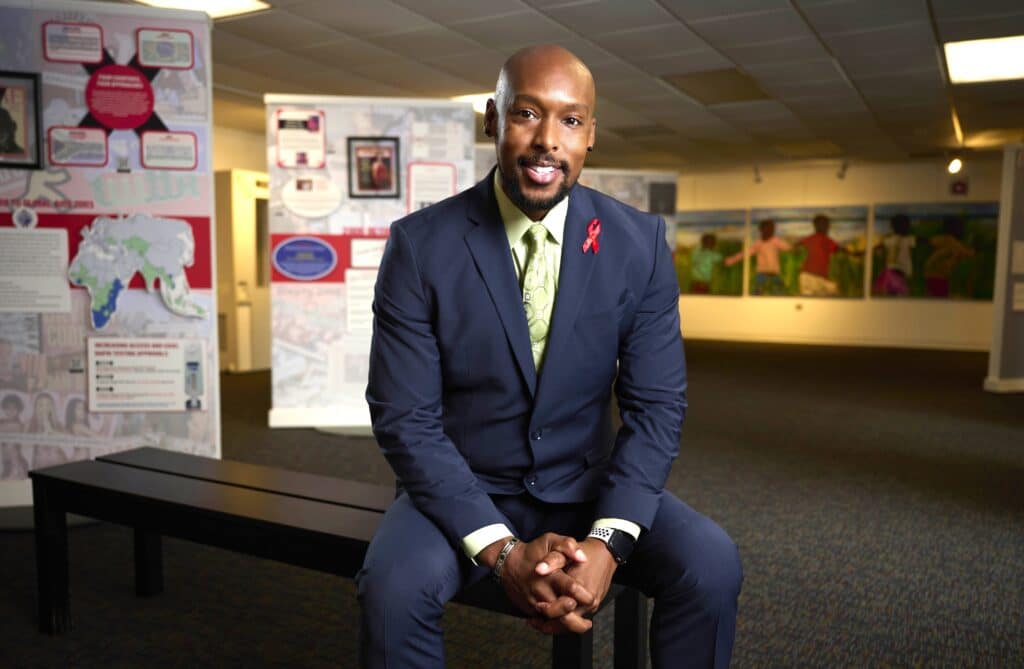You’re never too old to learn how terribly ignorant you are.
When I first heard about plans for a World AIDS Museum in Fort Lauderdale, FL, some years ago, I might have rolled my eyes a little bit. Who’s going to that? I wondered. Those of us who were there aren’t likely to check it out, at least no more than once. We lived it.
Aside from the irony of someone who has spent his life chronicling HIV dismissing the value of a project that would, well, chronicle HIV, my misgivings were rooted in privilege and a rather myopic view of the epidemic at large.
Terry Dyer, bless him, has heard these questions before, and he’s perfectly suited for his role as Executive Director of the World AIDS Museum and Education Center because he has the patience to helpfully answer them, no matter how many white gay men of a certain age might keep asking them.
“I get that quite a bit, actually,” Terry responded, when I asked him directly about my initial attitude toward the museum. He then became a little more pointed in his explanation. “This epidemic impacts all of us and we have to keep that in mind. It is not an LGBTQ-specific epidemic or virus, it actually impacts all of us, right?”
Yes, the AIDS 101 lesson I was in the midst of receiving from Terry, who happens to be a Black man nearly a generation younger than me, gave me a flush of embarrassment. But he kept on with his point, patiently and without shaming the ageism and racism inherent in my attitude.
“People don’t necessarily know that, five or six years ago, the highest HIV infection rates were among African-American women. And so, with statistics like that, it gets rid of the notion that it is only LGBTQ focused. That’s why our organization needs to continue to exist, to continue the messaging among all demographics.”
The basic education about HIV that Terry outlined is vital to the mission of the museum, and is baked into its name: The World AIDS Museum and Education Center. The museum is hardly a depository for dusty artifacts from the plague years. While it features ongoing visual exhibits of HIV/AIDS history that are free and open to the public, Terry Dyer is most passionate about the outreach they offer to community groups, employers and schools to teach important history and explain the ongoing public health threat on HIV.
Based as they are in Florida, Terry is aware of the State’s muffling of gay and sexual health topics. He’s on the job, working with local school officials and legal minds to confront the legalities of anything that keeps the museum from educating in schools. They also have a busy summer program for students to explore HIV/AIDS through an artistic lens.
My conversation with Terry Dyer could be condensed to simply, “Mark, it’s not about you. It’s about all those other communities whose lives have not been chronicled in the same way, who haven’t had media exposure and television movies, and it is about continuing to carry a message of prevention and support to those who haven’t heard it.”
It takes a certain confidence for anyone to create an organization called The World AIDS Museum and Education Center. I mean, you better have your act together to label yourself in that way. The exhibits I’ve seen at their facility have been impressive, but the passionate outreach embodied by Terry Dyer is where the real value of the museum becomes clear.
“We will continue to preserve the history of the epidemic,” Terry told me, “because younger generations need to know where we’ve been, where we are now, and how we move forward.”
“There’s a lot of gloominess around talking about HIV/AIDS,” Terry concluded, with perhaps a little side-eye toward the kind of attitude I initially displayed, “but there doesn’t have to be. For those who lived through the epidemic, that’s a privilege. With privilege comes responsibility. Let’s figure out ways we can take that and share the message, preserve our history, and make sure younger people are taking care of themselves from a sexual health and wellness perspective.”
For more information on the World AIDS Museum and Education Center, visit their website or stop by their museum location in Fort Lauderdale, Florida the next time you’re in town. I’m betting you will learn something, whether you lived through it or not.
Mark
p.s. Beyond his role in the HIV community, Terry Dyer knows how to slay Instagram. I’m just sayin’.





